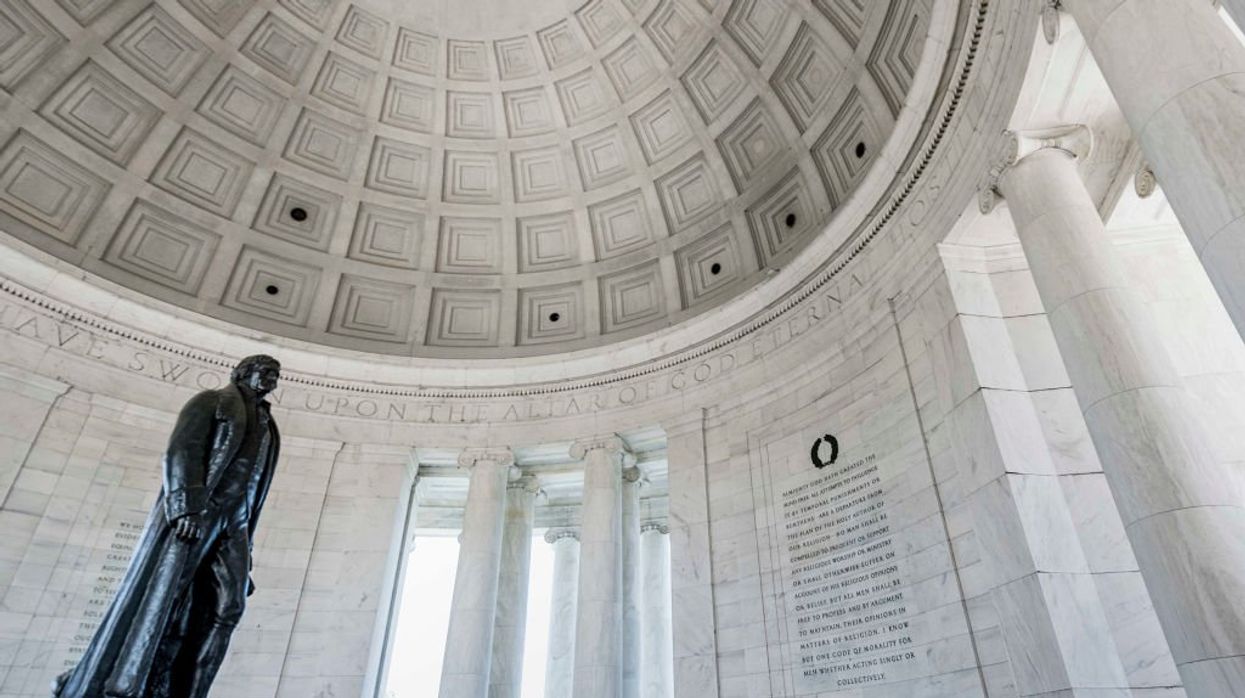A generation has passed since the Cold War ended --- and along with it, a true understanding of communism. Young voters today grew up in school systems where capitalism was often a dirty word. They heard the siren call of socialism and its promise of being the great equalizer. They're in for a rude awakening.
In this series, Glenn discusses the origins of communism, what it really means and what lurks behind the pleasant label of "democratic socialism."
Communism Part II: The Scourge Spreads
Communism's first leader --- Vladimir Lenin --- fell ill and died in 1924, setting the stage for Josef Stalin. Just as it had been under the first few years of communist policies, the Soviet Union fell into another great famine in the early '30s. Stalin brutally kept food from starving people, ordering his soldiers to shoot and kill peasants that came near it. Adding to the five million who had succumbed to the famine of 1921, another six million people died.
Former Ukrainian president, Victor Yushchenko, in a speech to the United States, put the total number of his dead countrymen at 20 million. It was essentially a genocide of the Ukrainian people, believed to have been planned by Stalin to eliminate the Ukrainian Independence Movement.
By the 1920s and 1930s, an Austrian named Adolf Hitler, once considered a joke in Germany, was a joke no longer. After joining and rising to the top of the National Socialist German Workers Party --- the Nazi Party --- Hitler attempted a coup in 1925, winding up in prison where he wrote Mein Kampf.
In Mein Kampf, Hitler laid out his intentions for ridding Germany of Jews and invading multiple nations. Somehow, the book captivated the imagination of many Germans. Hitler himself made a fortune from the proceeds. In 1933, he became chancellor of Germany and began implementing the policies he'd laid out to the German people. Hilter saw his brand of National Socialism as much more progressive than Soviet Communism.
Despite their animosity, the Communists and the National Socialists shared a thirst for blood and a lust for power. Hitler launched World War II with the invasion of Poland, and Germany then marched into France and Belgium. Soon, Europe was entrenched in the biggest and deadliest war in human history, the "workers" they spoke fondly of trampled in the ascension to power.
Before it was over, Hitler and his National Socialists had conducted the horrific Holocaust, with the extermination of six million Jews, and tens of millions more dying as a result of the war.
By the end of World War II, Mao Zedong had gained control of northern China. He had convinced impoverished peasants to fight against Chinese nationalists, promising redistributed land and lower taxes.
Mao's forces swept to victory, and the nationalists fled to Taiwan. But the poor in China never saw the promised equality or redistribution of wealth. Rather, Mao oversaw the starvation and slaughter of 60 million Chinese.
By 1981, five years after Mao's death, 85 percent of China's population lived in abject poverty. Yet Chairman Mao's image appears on hipster T-shirts and coffee cups around the world, even showing up on Obama's Christmas tree as a White House Christmas ornament in 2009.
As communism continued to spread across the Asian continent, World War II ended with Soviet troops occupying North Korea and U.S. troops in South Korea. The Soviets installed a North Korean communist leader to head the new communist government of North Korea. The Eastern Hemisphere had seen virtually nothing but bloodshed, oppression, and war during the first 33 years of communism and national socialism.
Unfortunately, communism eventually infected the Western Hemisphere, where another ruthless communist rose to power. Che Guevara, yet another Marxist revolutionary born to wealthy parents, was a ruthless, racist killer who seemed to have contempt for all those he pretended to care about. Like Mao, he is widely celebrated today by many on the American left as a hero of the worker and minorities.
According to the Black Book of Communism, during just the first year of Che's revolution, firing squads executed 14,000 people. He sent thousands more, including homosexuals, to concentration camps. Che plotted the destruction of the Statue of Liberty, the Liberty Bell, the Washington Monument, as well as bombing Macy's, Gimbels, Bloomingdale's and Grand Central Station in New York City. In 1967, Che's reign of terror finally ended, when he was executed by firing squad.
Despite the wake of oppression and death left by communism all over the world --- 100 million peacetime deaths and millions more during revolutionary wars --- many continue to glorify it to this day.
Listen to the Full Series on Communism

 John Greim / Contributor | Getty Images
John Greim / Contributor | Getty Images
 Kean Collection / Staff | Getty Images
Kean Collection / Staff | Getty Images